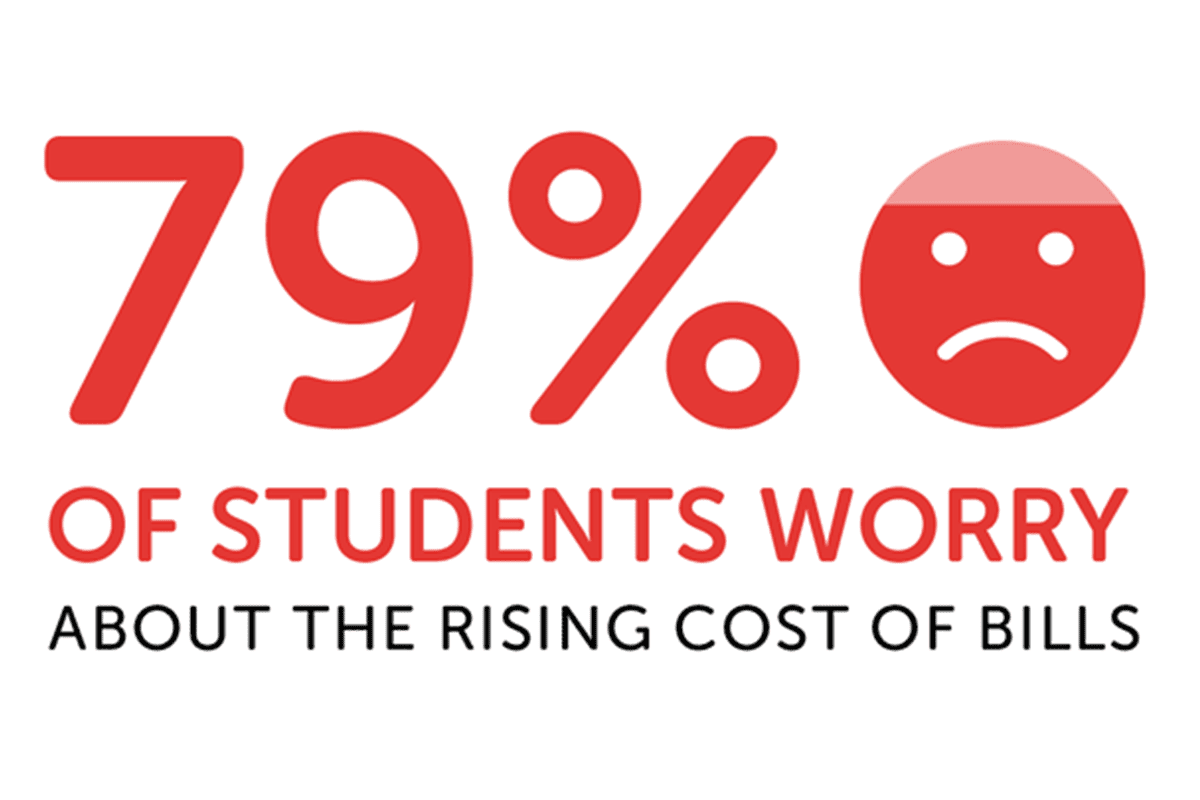New survey reveals the challenges students are facing with rising energy bills

This week, the National Student Accommodation Survey 2022, published by @SaveTheStudent, revealed the impact that the rising cost of energy bills is having on students.
Among the findings, Save the Student has estimated that current students could be £100 million worse off compared to those eligible for the government’s full support package that is intended to help UK households with the rising cost of bills.
Cost of living
Energy prices and the cost of living have been rising at an alarming rate, affecting university students, like so many others. However, although the government has announced a support package to help UK households with the increasing bills, the survey highlights that students have been worryingly overlooked.
Save the Student estimates that, as full-time students don’t pay council tax and therefore won’t be eligible for the £150 council tax rebate, they will miss out on over £40 million of support.
On top of this, many students (especially those in university or private halls) have bills included in rent. This means they won’t benefit from the £200 bills credit in October, but will likely need to pay it back. Also, even students who do pay bills are statistically likely to end up living with fewer housemates after uni, so could pay back more than they saved.
Based on this, students could end up repaying an estimated £60 million more than they’ll save through the £200 bills credit. This, combined with the £40 million they’re missing out on by not qualifying for the £150 council tax rebates, brings the estimated total shortfall to £100 million.
This is simply not good enough.
How are rising energy prices impacting students?
From the National Student Accommodation Survey 2022 results, it is clear that the rising cost of living could have a big impact on many students’ financial situations. Four in five students who have energy bills said they are worried about the rising costs, and three in five had already noticed their bills increase.
It was particularly concerning to hear that, among students in the survey who pay bills, 54% anticipate cutting back on socialising due to the rising costs, while 43% expect to cut back on groceries.
It’s important to note that the government has introduced some measures that have the potential to help students, such as the £144 million discretionary funding that some students may be able to access. However, not all students are guaranteed this funding.
Evidently, students need support from the government that is guaranteed, and they need this support soon.
Jake Butler, Save the Student’s money expert, comments:
“The cost of accommodation is already a huge drain on students’ finances and as we can see from our latest insights, the situation is unfortunately set to get a lot worse.
“The government has offered help but the vast majority of students won’t be able to access it. In the case of the £200 rebate, it’s actually likely many will end up paying it back over the next five years despite never having the advantage of the saving in the first place. How can that be fair?
“This is all on top of the ongoing issue that the Maintenance Loan, which is intended to help students cover living costs like this, was not enough, even before the spiralling increases in the cost of living.
“Alongside the alarming rise in energy prices, we conservatively estimate that the amount of support that current students are set to miss out on will be over £100 million. I am calling on Rishi Sunak and the Universities Minister, Michelle Donelan, to outline what they plan to offer to, what seems to be, a forgotten sector of our society.”
A Department for Education spokesperson said:
“No student should have to worry unduly about their financial situation while they are focusing on their studies.
“We have asked the Office for Students to protect the £256m available to support disadvantaged students and those who need additional help – which is in addition to universities’ own hardship funds and the £85 million worth of funding which was made available to universities to help students in the 2020/21 academic year.”











Responses